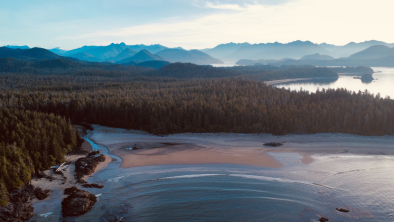JDFEA voting may change
Sooke News Mirror

A change being requested by the Capital Regional District Board will alter the way land use decisions are made in the Juan de Fuca Electoral Area.
On Wednesday, April 13, the CRD Board voted to reject a staff report recommending no change be made to the voting structure on land use issues in the JDFEA. The Board has requested an Order-in-Council from the province to create an additional Voting Block C that would allow all Directors to vote on Part 26 land use matters related to the Rural Resource Lands in the JDF. The change would only affect the Rural Resource Lands; other areas in JDF would remain under the current Committee A and B voting structure.
The request was sent to Minister Ida Chong from Board Chair Geoff Young on April 14, 2011.
The board is asking the province to create a new voting block made up of all the 22 directors and chair of the CRD. Currently only the directors for Juan de Fuca, Metchosin, Colwood, Langford and Sooke can vote on land use issues in the JDFEA Rural Resource Lands.
What sparked the request for change is the opposition to a phased-development proposal put forth by Ender Ilkay which would see 257 resort cabins built in a on property located above the Juan De Fuca Marine Trail. The resort would be built over 10-15 years. The whole proposal has met with opposition from environmental activists who do not want any development in the area for fear the trail will be ruined as it is in close proximity to the proposed resort development. Ilkay has offered to give up vast portions of the property for protected areas and park, 245 acres of the 582 tract.
The lands in the Juan de Fuca Electoral Area have been the focus of much protest ever since the province allowed Western Forest Products to remove land from TFL 25 in 2007 and put it on the real estate market in an effort to curtail the company’s losses.
Mike Hicks, regional director for the JDFEA, said the vote to change the structure was not unanimous. He said the pressure on all of the directors has been “pretty enormous.”
“We were presented with a huge problem when the lands were released from the TFL. We acted and worked hard to develop the OCP and bylaws and now we have an application inside,” said Hicks.
Much of the argument for broadening the voting structure is because many people from Southern Vancouver Island feel this is a
regional issue and not a local one.
Hicks objects to this stating it seems like they are saying, “let us decide for you, you’re not capable.”
One element that has not been taken into account is the support of the resort development by the Pacheedaht First Nations. They want to see the area developed for the jobs it will create and the opportunities afforded to their community, both at the resort and through the ensuing increase in tourism. They have directed Hicks to vote in favour of the development.
“I ultimately have faith in the provincial government to allow us to finish our work,” said Hicks.
During the time the province is considering the request, the Marine Trail Holdings group development proposal will continue through the current legislated process.
On April 19 the Land Use Planning Committee will make a recommendation to the CRD Board at its meeting in May to either give the proposal first and second reading and direct to a public hearing, or to refuse the application.


